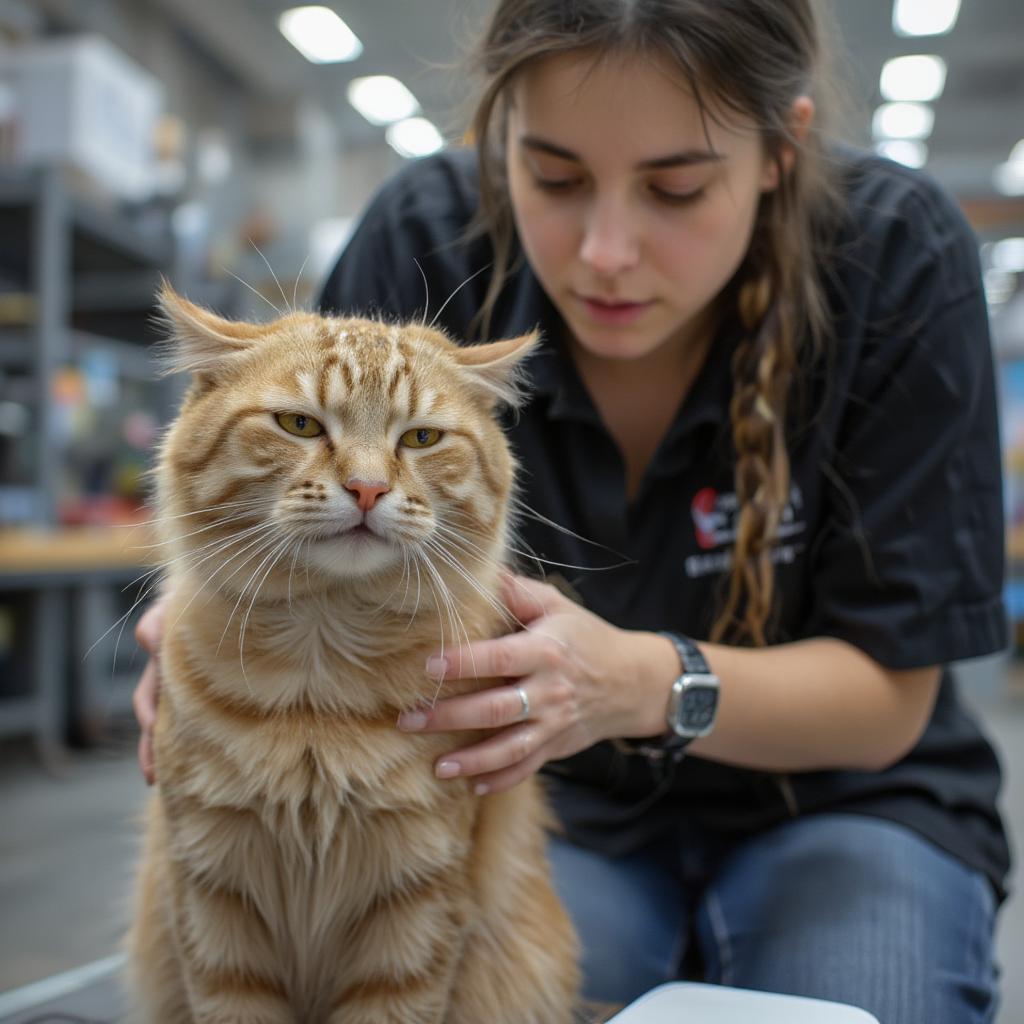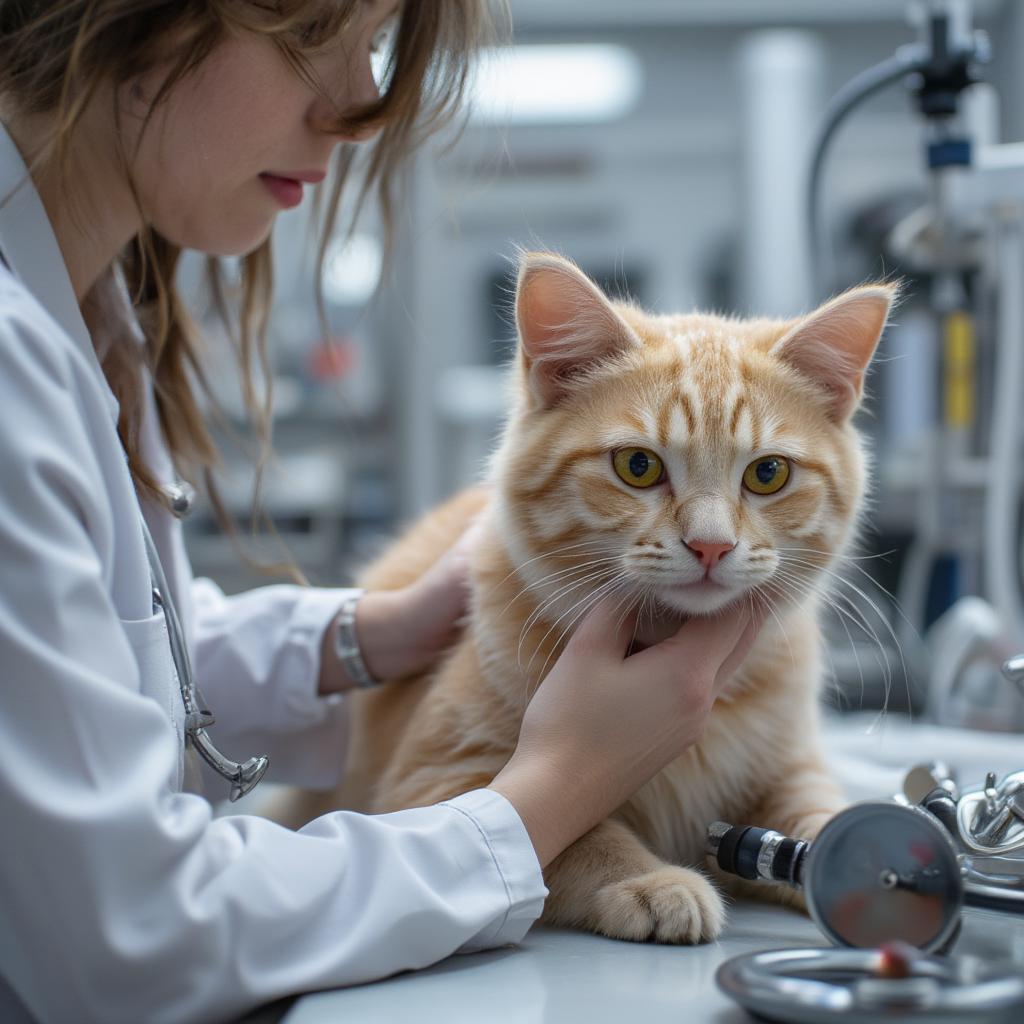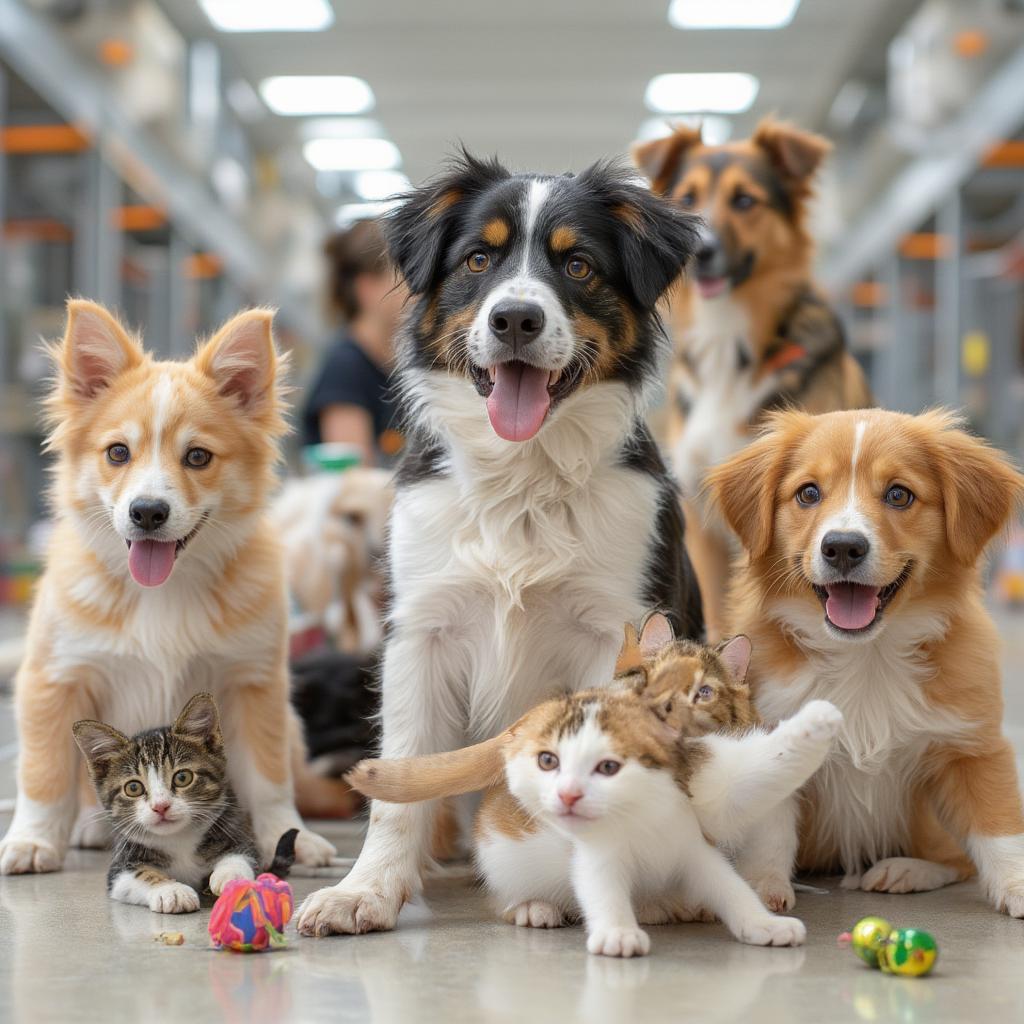Rescue British Shorthair: A Second Chance at Happiness
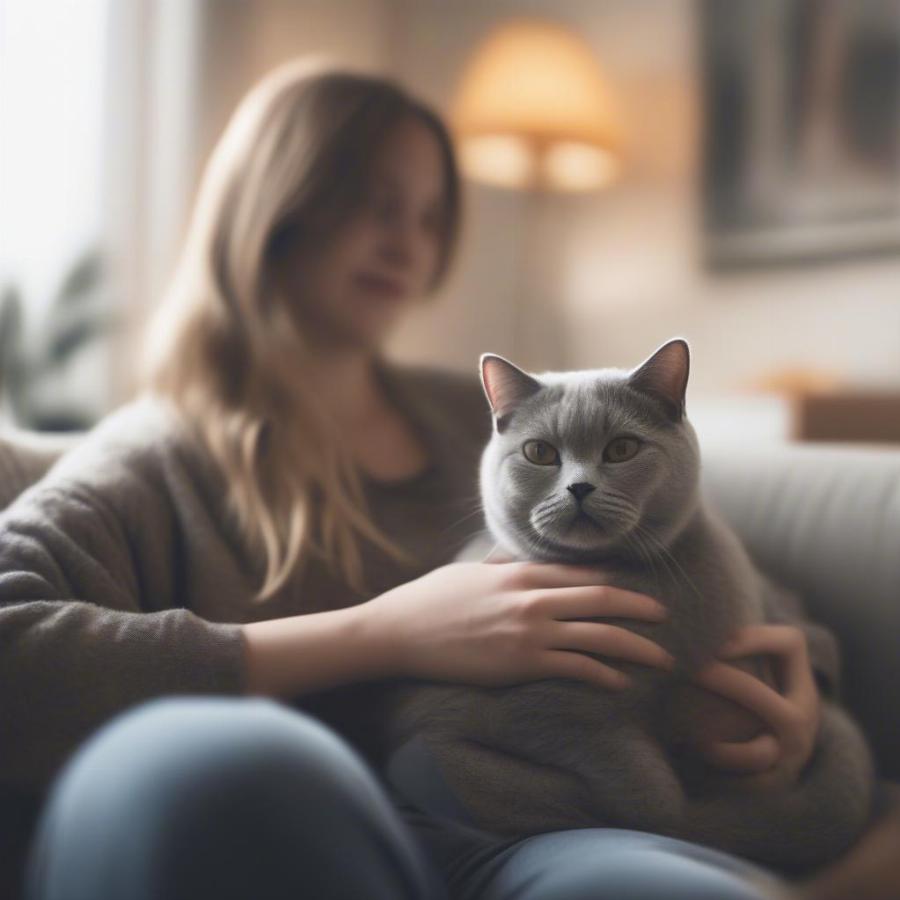
British Shorthairs, with their plush coats and endearingly round faces, are a beloved breed. Sadly, some of these magnificent felines find themselves in need of rescue. Whether facing homelessness, neglect, or unforeseen circumstances, these gentle souls deserve a second chance at a loving home. This article serves as a guide to understanding the unique needs of rescuing a British Shorthair and how you can make a difference in their lives.
Understanding the Needs of a Rescued British Shorthair
Rescuing a British Shorthair can be a deeply rewarding experience. These cats often carry emotional baggage from their past, requiring patience, understanding, and a gentle approach. While each cat’s story is unique, some common needs include:
- Emotional Security: A rescued British Shorthair may be hesitant or fearful at first. Providing a safe, quiet space where they can decompress is crucial. Gentle interaction, positive reinforcement, and a predictable routine will help them build trust and confidence.
- Physical Health: Some rescued cats may arrive with pre-existing health conditions. A thorough veterinary checkup is essential to address any medical needs and establish a baseline for their ongoing care. British Shorthairs are prone to certain health issues, including hypertrophic cardiomyopathy and polycystic kidney disease, so regular veterinary visits are vital.
- Dietary Considerations: Depending on their past, a rescued British Shorthair might have dietary restrictions or sensitivities. A high-quality, balanced diet tailored to their specific needs is essential for their overall well-being. Consult with a veterinarian to determine the best dietary approach.
- Socialization: Rescued British Shorthairs may need help adjusting to new environments and interacting with other pets or people. Gradual introductions and positive reinforcement can help them become comfortable and confident members of the family.
Finding a British Shorthair to Rescue
If you’re ready to open your heart and home to a rescued British Shorthair, several avenues are available:
- Breed-Specific Rescues: Several organizations specialize in rescuing British Shorthairs and other purebred cats. These rescues often have a deep understanding of the breed’s specific needs and can provide valuable guidance and support.
- Local Animal Shelters: Check your local animal shelters and humane societies. While finding a purebred British Shorthair might be less common, you may discover a wonderful mixed breed with similar characteristics.
- Online Adoption Platforms: Numerous online platforms connect adoptable pets with potential homes. You can often filter your search by breed, location, and other criteria.

Preparing Your Home for a Rescued British Shorthair
Welcoming a new pet into your home requires preparation. To create a safe and comfortable environment for your rescued British Shorthair:
- Cat-Proofing: Secure any potential hazards, such as toxic plants, loose wires, and small objects they could ingest. Provide designated scratching posts to protect your furniture.
- Essential Supplies: Gather essential supplies, including food and water bowls, a litter box, a comfortable bed, and toys.
- Creating a Safe Space: Designate a quiet area where your new companion can retreat and feel secure, especially during the initial adjustment period.
The Joy of Rescuing a British Shorthair
Rescuing a British Shorthair is a truly rewarding experience. You’ll not only gain a loving companion but also make a profound difference in a deserving animal’s life. The bond you forge will be built on mutual trust, respect, and unconditional love.
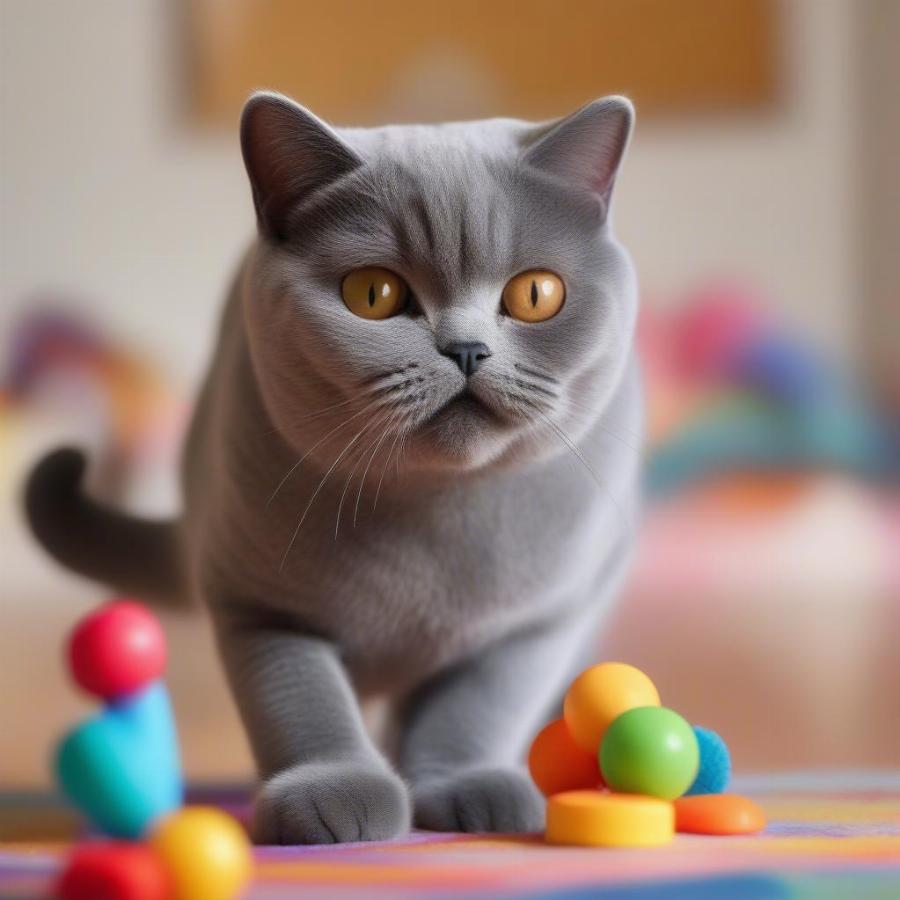
What to Expect After Adoption
The initial adjustment period can vary depending on the cat’s past experiences. Be patient and understanding as they navigate their new surroundings. Provide consistent love, support, and a stable routine to help them settle in. Observing their behavior and seeking guidance from a veterinarian or animal behaviorist can ensure a smooth transition.
Why Choose Rescue Over Buying?
Choosing to rescue a British Shorthair offers numerous benefits:
- Saving a Life: You provide a loving home to a cat in need, giving them a second chance at happiness.
- Reducing Overpopulation: Adoption helps alleviate the strain on animal shelters and reduces pet overpopulation.
- Financial Benefits: Adoption fees are typically lower than purchasing a cat from a breeder.
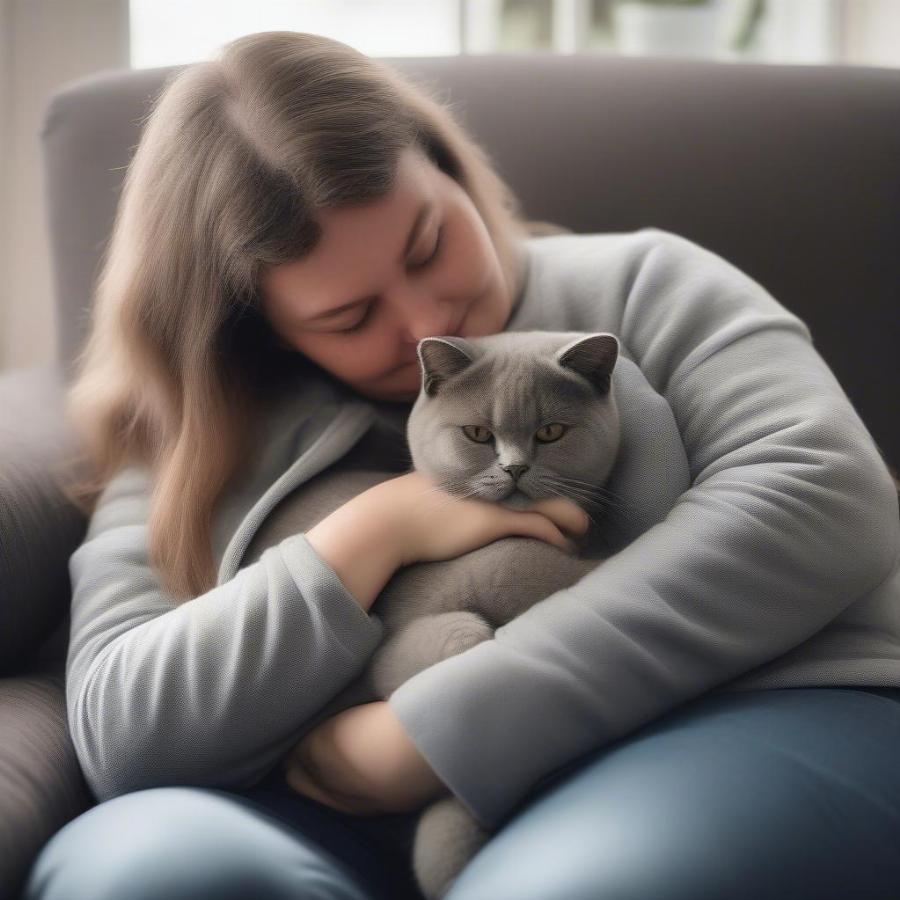
Giving Back to the Community
Rescuing a pet is a powerful way to give back to your community. By supporting animal rescue organizations and advocating for responsible pet ownership, you contribute to a more compassionate and humane society.
In conclusion, rescuing a British Shorthair is a deeply fulfilling experience. By understanding their unique needs and providing a loving, supportive environment, you can give these magnificent creatures the second chance they deserve. The journey of rescue is one of transformation, filled with hope, love, and the joy of making a difference in a deserving animal’s life. Embrace the opportunity to welcome a rescued British Shorthair into your heart and home – you won’t regret it.
FAQ
- What is the typical lifespan of a British Shorthair? British Shorthairs generally live between 14 and 20 years.
- Are British Shorthairs good with children? British Shorthairs are generally known for their gentle and patient nature, making them good companions for children.
- Do British Shorthairs require a lot of grooming? Their short, dense coat requires minimal grooming. Weekly brushing is usually sufficient.
- Are British Shorthairs prone to specific health problems? Yes, some health issues include hypertrophic cardiomyopathy and polycystic kidney disease.
- What is the personality of a British Shorthair like? They are known for being affectionate, playful, and relatively low-maintenance.
- How much does it cost to adopt a British Shorthair? Adoption fees vary depending on the rescue organization or shelter.
- What should I look for when choosing a rescue organization? Choose a reputable organization that prioritizes the well-being of the animals in their care.
- Are British Shorthairs good with other pets? With proper introductions, they can coexist peacefully with other pets.
- How can I help support British Shorthair rescues? You can donate, volunteer, or spread awareness about the importance of adoption.

